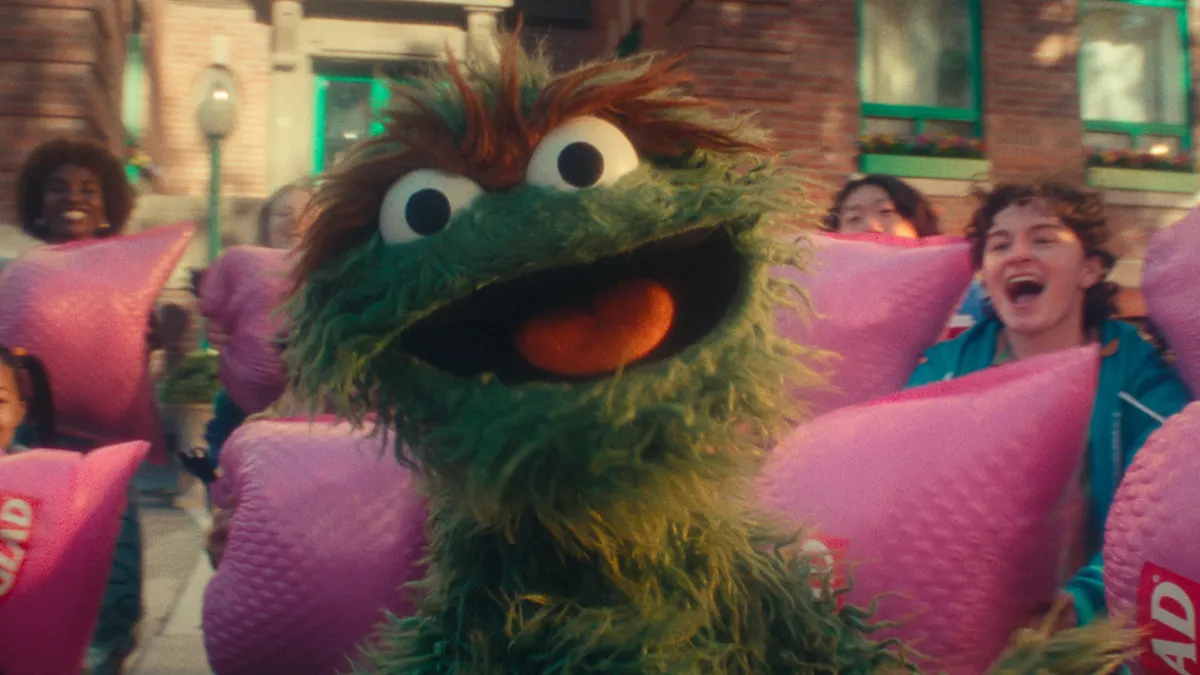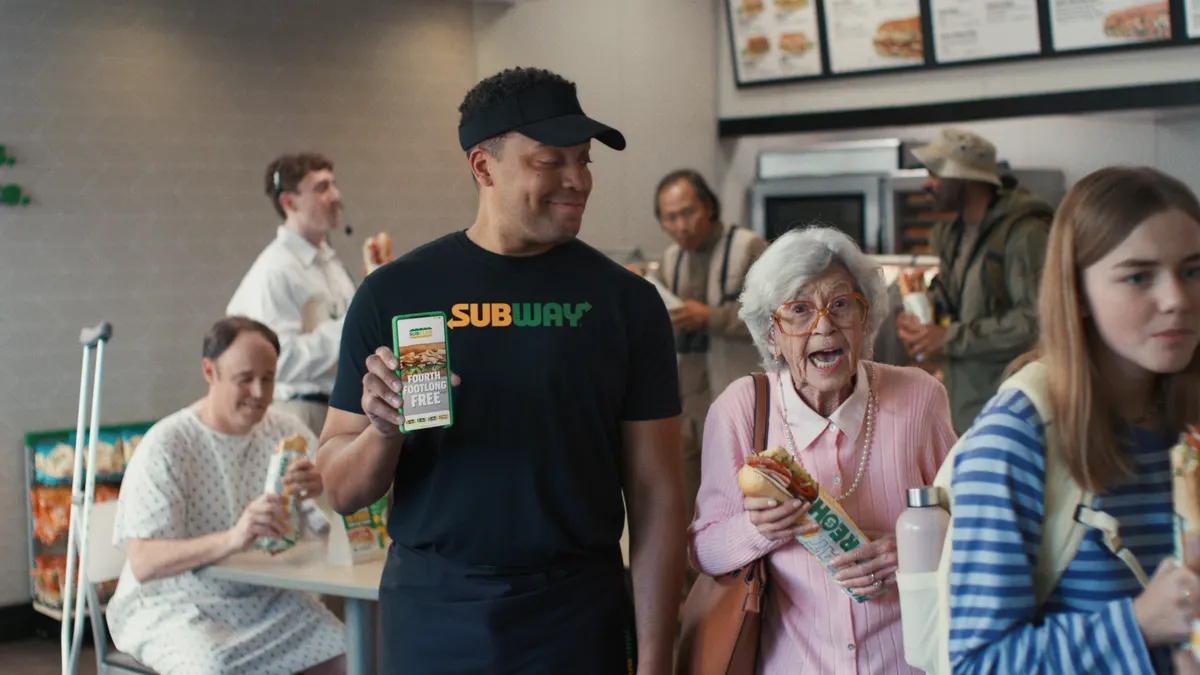Interactive storytelling is gradually migrating from videogame and PC platforms onto smartphones and even TVs. The greater engagement with a storyline is creating new opportunities for brand advertisers to reach viewers who are shifting to digital platforms.
Netflix, the video streaming service with 100 million subscribers worldwide, in July debuted its first choose-your-own-adventure shows that urge viewers to make decisions that steer the direction of the narrative. "Puss in Book: Trapped in an Epic Tale" and "Buddy Thunderstruck: The Maybe Pile" are the first two kids' titles that have branching narratives created by DreamWorks, American Greetings and Stoopid Buddy Stoodios.
The trend is extending to other platforms as well. Choose-your-own-adventure storytelling app Episode has partnered with several major entertainment brands while chat story apps like Hooked have seen their user base grow quickly in the past 12 months.
"This is a reboot on a familiar theme in a new medium. Netflix took the first step, and I expect others like Hulu and Amazon to try it next," said Adam Fingerman, chief experience officer and co-founder of brand app developer ArcTouch, a unit of Grey. "In the '80s and '90s, 'adventure' games like Zork and Myst were popular. These were interactive stories where you had multiple options to choose the narrative and change the outcome."
Making ads part of the narrative
Mobile technology has opened up many new channels to interact with customers by putting stronger computer processing power into the hands of consumers. Text messages, chatbots and apps that engage people with a brand are a few of the ways that mobile technology is shaping interactions with consumers.
Episode, the choose-your-own-adventure storytelling app developed by game studio Pocket Gems, is especially engaging with its interactive features that urge mobile users to participate in shaping a narrative. Episode, which is developing several ways to monetize its service, feeds ads to viewers as they guide the actions of animated characters through a storyline.
Marketers that are considering placing video ads in a digital story need to avoid major interruptions that will lose viewers, however, according to ArcTouch's Fingerman.
"There are more opportunities to insert advertising at various break points in the story when the viewer makes a choice," he told Mobile Marketer by email. "However, ads will need to be shorter to not interrupt the story. Thirty-second-long ads will not work. Advertisers are going to have to fit their message into eight seconds."
Success stories
Pocket Gems, which this year received $90 million in fresh investment from Chinese social media giant Tencent, has developed Episode games for several entertainment franchises including "Mean Girls" and the TV show "Pretty Little Liars."
Last month, the San Francisco-based startup partnered with Universal Studios to make a story based on the "Pitch Perfect" movies starring Anna Kendrick. The film studio will release "Pitch Perfect 3" during the holiday season, and Pocket Gems is developing an original plot, Pitch Perfect: In Deep Treble, featuring characters from the movie.
While the shows are free to watch initially, some stories require payment to access additional content or to move the narrative along more quickly. Viewers have spent more than $35.7 million on the app to date, according to researcher Sensor Tower. Episode is also experimenting with an ad-free version that requires a payment from a viewer.
As part of its engagement with viewers, Episode lets players submit scripts to animate and then upload for other people to see. Since 2014, Episode users have watched more than 3 billion episodes. The app's active user base of 5 million people is primarily made up of young women ages 13 to 25, a demographic that advertisers want to reach.
Singer Demi Lovato in 2015 developed an Episode game that let fans create an avatar and participate in a story called Path to Fame. The narrative gives players choices to make as they balance fame with friends, family and other demands. Lovato's style and music are integrated throughout.
"What drew me to the app in the first place was I wanted to create a game," Lovato told Business Insider. "And so we had looked at different ways we could create my game that I had in mind and we ended up partnering with Episode."
The Lovato game netted $18 million in revenue, 446 million episode views and 27 million unique visitors, Business Insider reported.
Different formats
Chat stories, which send text message stories to subscriber phones, are another category of storytelling that's growing, especially among the young adult audience.
Hooked, a mobile app from narrative technology startup Telepathic, publishes fictional text conversations and urges people to subscribe for $3 a week to get unlimited access to stories and images. The app's stories don't consist of paragraphs and chapters, but instead use a series of SMS chat bubbles called "hoots" that appear with each finger tap. Hooked also has social networking features that let users react to stories, draft their own narratives and share them with other readers.
Hooked is the market leader in the category of chat story apps, followed by later entrants Yarn and Tap. All three apps surged in popularity among young adult readers at the beginning of summer vacation, according to analytics firm SensorTower.
"These types of 'chat stories' have been around for several years, but they were really propelled into the spotlight within the past 12 months by the efforts of app makers, primarily Hooked, to leverage social media and large user acquisition budgets to grow interest and adoption of them in the teen and pre-teen demographic," Oliver Yeh, co-founder of SensorTower, said in an interview.
His firm estimates Hooked, Yarn and Tap earn about $780,000 a month as a group after Apple and Google platform fees. About 70% of the chat story audience is under age 25, divided evenly among men and women.
"These apps have shown themselves to be sources of consistent revenue," Yeh said. "However, as with all apps, they are competing for a finite amount of time that users spend engaged with apps each day, so the opportunity for new apps with similar content to break in is limited."
The adoption of interactive storytelling is likely to depend on the media platform. While smartphones are portable and encourage endless interaction with their tactile touchscreens, TV has a history of being a comparably passive medium.
"Early entrants like Netflix are likely doing a lot of testing and tweaking right now to see what sticks," ArcTouch's Fingerman said. "I don't see it replacing linear programming. People often like to just 'lean back' and be entertained, and not necessarily want to be involved in their entertainment. If the experience feels too cumbersome or too much work, it won't be fun."


















